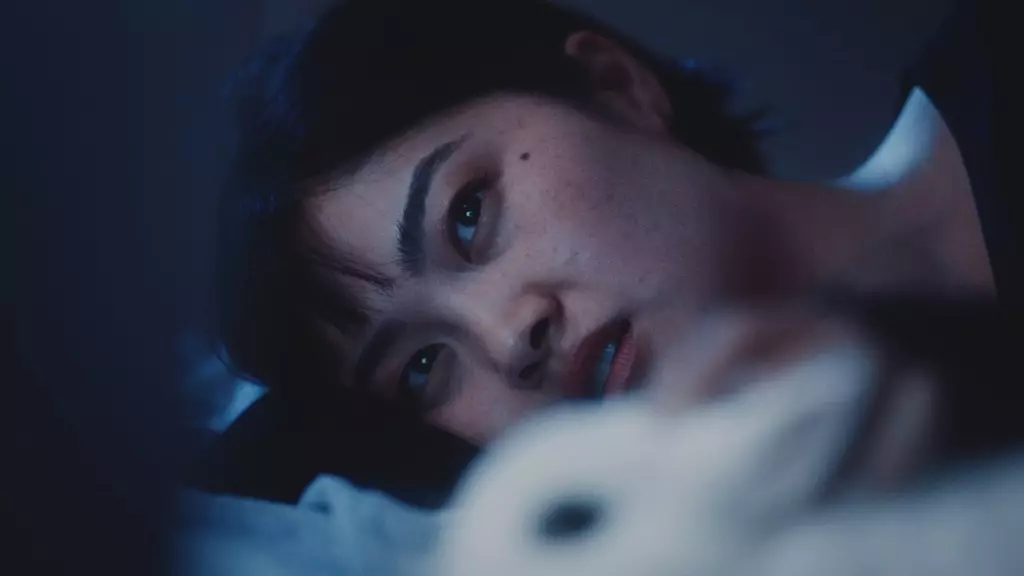Katarina Zhu’s feature debut, ‘Bunnylovr’, offers an intimate glimpse into the complexities of identity, relationships, and the haunting echoes of unfulfilled parental connections. Set against the bustling backdrop of New York City, the film centers on Becca, portrayed by the multifaceted Zhu. As a young Chinese American woman, Becca embodies a curious blend of resilience and vulnerability, grappling with the intricacies of life, privilege, and self-worth. Her multifaceted existence oscillates between the allure and challenges of being a cam girl, as she seeks personal fulfillment and connection in a world defined by superficial interactions.
The distinctive narrative approach employed by Zhu presents a stark juxtaposition between external perceptions and internal realities. In this digital age, where human connections more often manifest through screens, Becca’s life serves as a microcosm for larger societal themes. The character’s journey is not merely about navigating her profession; it is an exploration of the layers of pain and pleasure that come with seeking validation and self-love in an environment fraught with objectification.
A pivotal moment in the film occurs when Becca receives an unexpected gift: a live bunny named Milk. This seemingly innocuous encounter becomes a powerful symbol of agency and self-care amidst a life riddled with exploitation. In the beginning, Becca’s reluctance to embrace this new responsibility reflects her broader struggle to assert her own needs, often sidelined by others who view her merely as a commodity. However, as Becca slowly opens herself to this new relationship, she begins to confront her emotional baggage.
The evolving dynamic between Becca and Milk presents a striking parallel to her interactions with the men in her life. The transactional nature of her relationship with the cam client John symbolizes the prevalent power imbalances that exist in many modern partnerships. Although John exhibits overtly toxic behavior, Becca is seduced by the financial security he provides and the semblance of intimacy born from their virtual escapades. This complexity highlights the difficult balancing act many individuals, particularly women, navigate when establishing boundaries in both personal and professional relationships.
The narrative thickens with the sudden re-emergence of Becca’s estranged father, William. As portrayed by Perry Yung, William represents a source of both shame and nostalgia, acting as a catalyst that forces Becca to confront her unresolved feelings about family and parental absence. Their chance encounter in the streets of New York serves as a surreal reminder of her familial ties that continue to shape her identity. Becca’s relationship with her father remains fraught, serving as a visceral reminder of the emotional wounds inflicted by unfulfilled expectations and the longing for connection.
Zhu expertly navigates the complexities of these relationships, presenting an authentic portrayal of a drifting people-pleaser trapped in a cycle of perpetual disappointment. The emotional upheaval experienced by Becca resonates universally, as many viewers can relate to the challenges of finding one’s place amidst the expectations of others. By weaving in humor and tenderness, the film presents a version of self-discovery that is both painfully relatable and ultimately uplifting.
As the narrative unfolds, ‘Bunnylovr’ evolves into a profound meditation on the search for self-acceptance and emotional healing. Through her interactions with Milk and the introspections that arise from her complex relationships, Becca embarks on a journey that culminates in self-love and mindfulness. The conclusion, while intentionally vague, conveys a sense of hope that resonates deeply with viewers who have grappled with similar struggles.
In shining a light on an often overlooked aspect of modern intimacy, Zhu’s film strikes a chord in an era increasingly characterized by digital connections. ‘Bunnylovr’ cleverly captures the essence of life lived online, while simultaneously reinforcing the importance of nurturing genuine relationships – both with oneself and others. Ultimately, this poignant exploration of emotional landscapes serves to remind audiences of the power of agency and the enduring quest for fulfillment.

